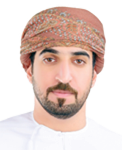

The days of Ramadhan are approaching and we know are good for health if done properly. Interestingly, Ramadhan is not always viewed as a date for weight loss because the spiritual concept dominates the idea of health among fasting people. On the other hand, fasting is a great opportunity to gain some physical benefits.
In Ramadhan and during fasting hours, you should know that many factors are at work during fasting, including less aggressive hormone production, less circulating bad cholesterol, glucose deprivation and sirtuin stimulation. Sirtuins are highly protective hormones known to be produced under conditions of food deprivation.
Since fasting during the month of Ramadhan lasts from dawn to dusk only, the energy stored in the body can be re-filled in meals of breakfast at the prescribed timings, making the body shift from the use of glucose as a primary source of energy to use fat and prevent breakdown of muscle proteins.
How interesting it is to know that with fasting, our body through the liver produces a molecule called beta-hydroxybutyrate that can delay our vascular ageing. If the vascular system becomes younger; it is less likely to have cardiovascular disease, Alzheimer’s disease, and cancer because all of these diseases are age-related. Here people are interested in whether human beings can enjoy the effects of prevention of metabolic diseases and prolonging life span by fasting or caloric restriction.
What I am trying to explain here is that, fasting is the absence of caloric intake for a given amount of time (anywhere from 12 hours to multiple days), while calorie restriction is a reduction in total daily caloric intake. Moreover, according to the researchers fasting has been reported to improve the anti-tumour effects of chemotherapy, reduce chemotherapy-associated side effects and even reduce tumour size. Also, fasting has also been shown to boost the immune system.
Many studies and different researchers have been thinking about the duration of proper fasting for a possible health benefits. But it has already been mentioned in Ramadhan. Intriguingly enough as researchers initiated fasting intermittently for a couple of days per week the results were optimistic towards a positive healthy feeling at the end of fasting.
As per their explanation, we do believe that fasting should not be confused with starvation, as you fast your body will primarily break down fat and non-essential tissues first to use for energy. Think about it like this — If you were stranded in a cabin in a blizzard with no heat and no firewood, in order to stay warm, you would burn the least important items first, like furniture. You are not going to throw your clothes blankets and food on the fire.
Your body is the same way. It will burn through what it identifies as the least essential tissue first, like fat, cysts, and tumours. This will happen first before your body experiences true starvation, which is the break down of vital organs and tissue. Beside fasting benefits, it is great to know that fasting can bring happiness, just two days after the release of the hormone endorphins one feels strength and lightness at the same time, nevertheless fasting must take a rest.
In conclusion, people have long tried to experience low calorie diets, hoping to ward off disease risks like diabetes and even depression for instance, beside delaying the effects of ageing, however studies have showed that fasting increases the number of stem cells, suggesting that famine-like fasting conditions kill old vulnerable cells and allow newer, more resilient cells to emerge and grow.
Finally, it is important to remember that although your health may improve by fasting, other factors can also determine the time you will ultimately live up to, including genetic factors and environment.
Dr Yousuf Ali al Mulla, MD, Ministry of Health. He is a medical innovator and educator. For any queries regarding the content of the column,
he can be contacted at: dryusufalmulla@gmail.com
Oman Observer is now on the WhatsApp channel. Click here



